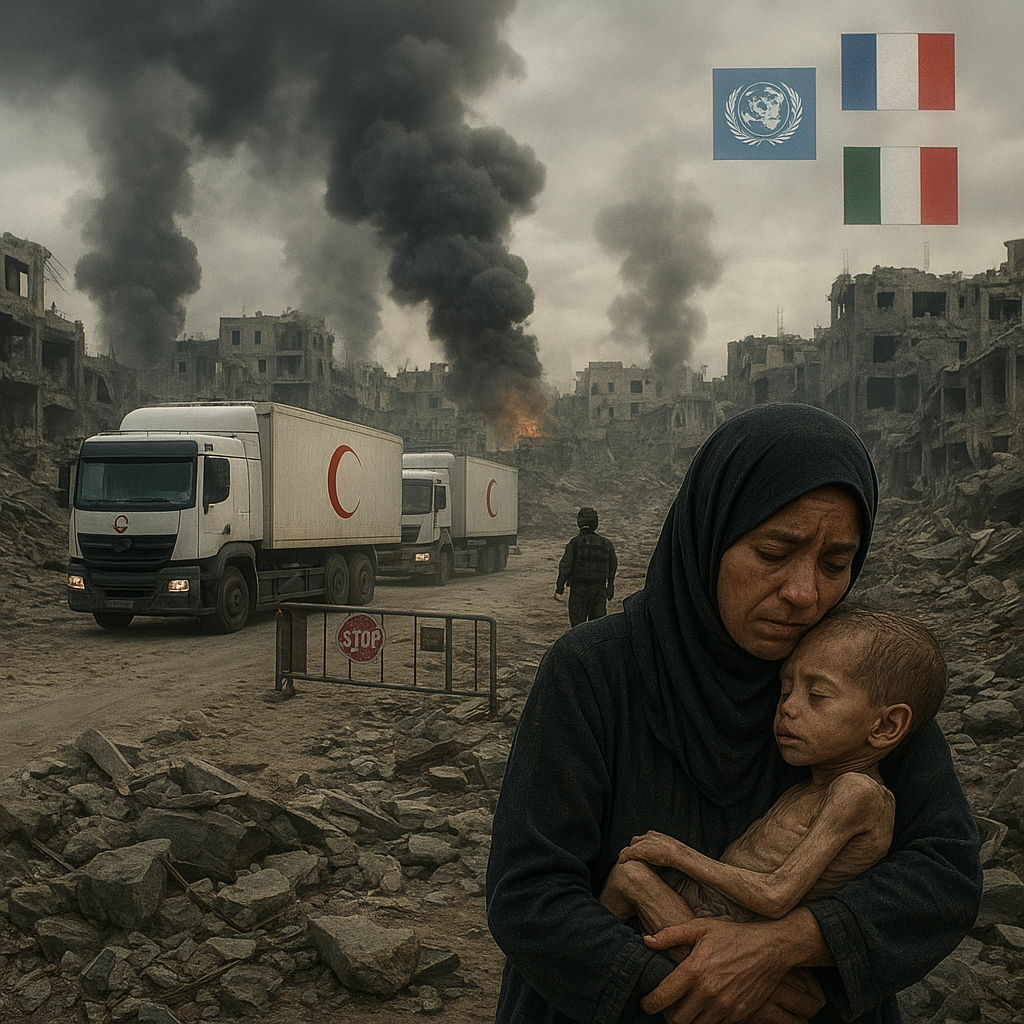1. Explosion in Gaza City: Israeli Soldiers Wounded
An explosion targeting an Israeli armored vehicle in Gaza City’s Zeitoun neighborhood has injured seven soldiers, according to the IDF. Israel has declared Gaza City a “dangerous combat zone,” ending daily humanitarian pauses. Humanitarian conditions continue to deteriorate amid famine and widespread displacement—over 23,000 civilians have fled Gaza City—with international bodies warning that safe mass evacuation is now impossible. Plans for a full military occupation of the city have sparked global condemnation.

2. France to Recognize Palestinian State at UN in September
President Emmanuel Macron has announced that France will recognize a Palestinian state at the UN General Assembly this September, framing the move as essential for peace and a response to the humanitarian disaster in Gaza. The announcement has drawn criticism from Israel and the U.S., but prompted similar commitments from the U.K., Canada, Australia, and Malta. This diplomatic push aims to revitalize the two-state solution and reduce reliance on armed resistance.
3. WFP Chief Highlights Starvation, Urges Increased Aid
During a visit to Gaza, WFP Executive Director Cindy McCain confirmed widespread starvation—especially among women and children—and pleaded with Prime Minister Netanyahu to enhance aid access. Despite over 300 aid trucks entering daily, aid remains insufficient. Famine, declared by the UN, is being disputed by Israel. Meanwhile, ceasefire negotiations and potential hostage exchanges involving Egypt and Qatar await Israel’s response.
4. Humanitarian Aid Reductions Fuel Displacement
Tens of thousands are fleeing Gaza City amid warnings of a military takeover. Reports indicate Israel is ending humanitarian aid—including food airdrops and truck deliveries—to northern Gaza. Around 23,000 people have already displaced, and Hamas has raised concerns regarding hostages held in Gaza City. Israeli leadership reportedly remains committed to dismantling Hamas, though negotiations for ceasefire and hostage release are underway.
5. EU Foreign Ministers Divided Over Gaza Response
At a recent meeting in Copenhagen, EU foreign ministers expressed deep divisions over how to respond to the Gaza war. While nations like Ireland, Spain, Sweden, and the Netherlands favor imposing economic pressure and potentially suspending a free trade agreement, countries such as Germany and Hungary oppose such measures. The lack of consensus leaves the EU’s position weak amid calls to curb Israel’s access to EU research funds.
Read more: “Gaza Under Siege: Starvation, Displacement, and Global Calls for Justice”